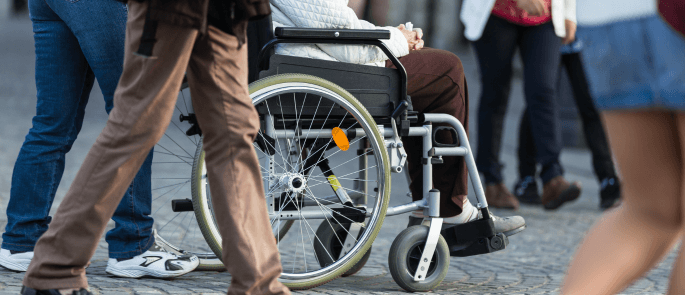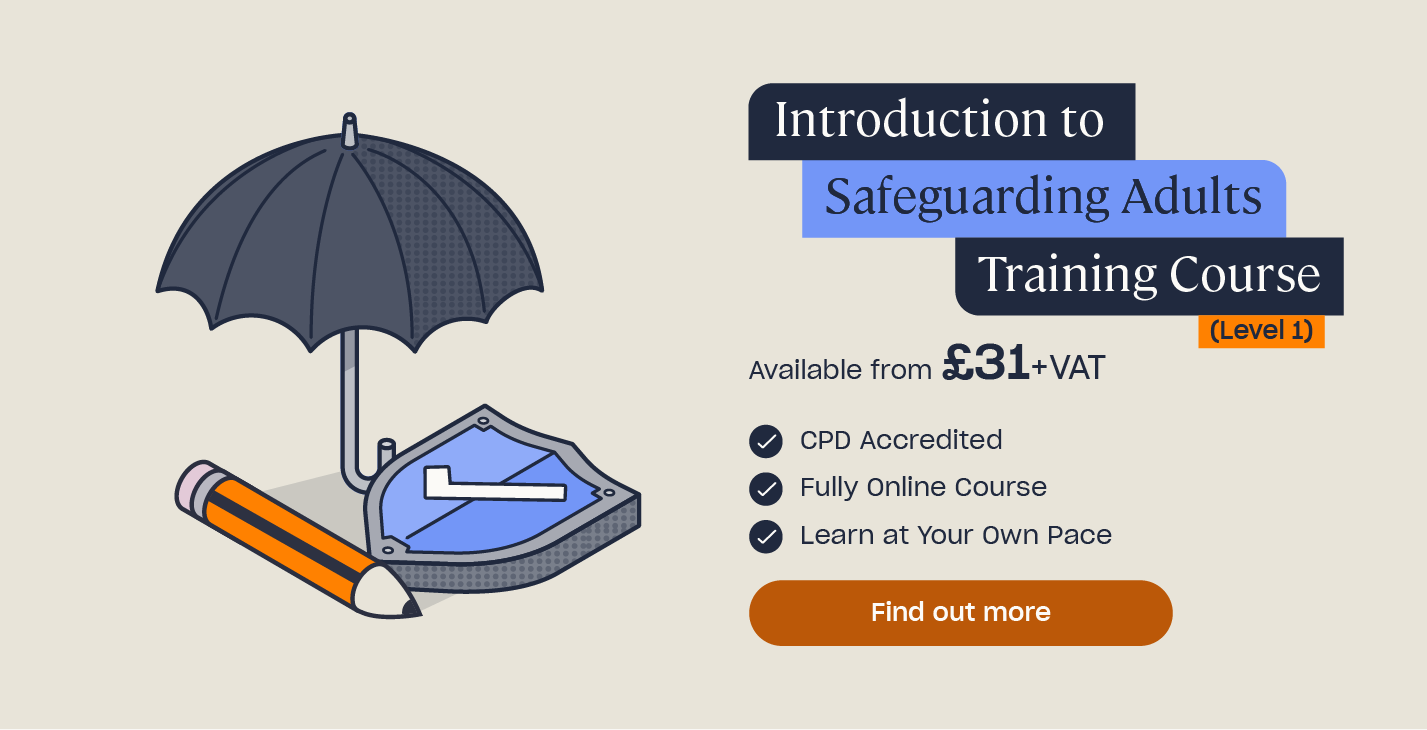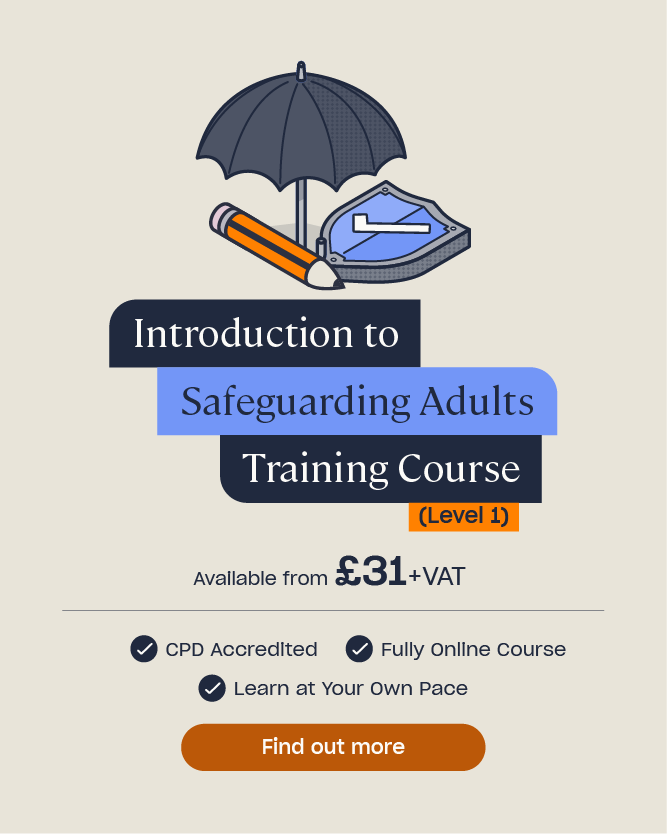How Can I Ensure That I Am Safeguarding Adults with Learning Disabilities?
Everyone deserves to live a happy life, free from exploitation, abuse and harm, regardless of whether they have a disability or not.
The majority of adults who have difficulties, such as a learning disability, live without any intervention. For some, however, they may be dependent on someone else and this may make them at greater risk of exploitation, abuse and harm.
What are my Safeguarding Responsibilities?
If you work with adults with learning disabilities, it’s vital that you’re aware of your safeguarding responsibilities and consider the issues at risk people may face. This will enable you to identify, prevent and respond to abuse and neglect.

A simple definition of safeguarding adults is ‘the protection of people aged over 18 against harm, including protection from danger, abuse or injury.’
Under the Care Act 2014, an adult at risk/adult in need is defined as any person who is aged 18 years or over and at risk of abuse or neglect because of their needs for care and or support.
This could be someone over 18 whom:
- Is dependent on someone else.
- Has a learning disability.
- Has a physical disability or illness.
- Has a mental health issue.
- Lives in a care setting.
- Is misusing drugs or alcohol.
- Is isolated.
- Is incapable of recognising abuse.

Remember that:
- Abuse can happen anywhere and at any time.
- Adults who are elderly or who have a learning disability tend to be the most common victims of abuse.
- Most allegations concern female victims.
- There will always be some sign that abuse and/or neglect are taking place, but some indicators may be more subtle than others.
Need a Course?
Our Safeguarding Training Courses provide you with all the knowledge you need to safeguard effectively. It explains your safeguarding responsibilities, how to recognise signs of abuse and neglect, and how to report your concerns.
What Types of Abuse Should I Look out for?
- Emotional
- Psychological
- Financial
- Institutional
- Neglect
- Physical
- Sexual

There will always be some evidence if an adult with learning a disabilities is being abused. However, some adults in need may be confused about what is happening to them, especially if someone they are dependent on is responsible. That’s why it’s crucial for those who look after them to know what to look out for.
Signs of abuse may include:
- Changes in appearance or weight.
- Changes in behaviour.
- Missing money or personal items.
- Inappropriate care.
- Unhappiness, distress, stress or depression.
- Bruises or physical injury.
- Problems sleeping.
In order to ensure that you are safeguarding adults with learning disabilities, it is essential that you know how to respond to any concerns that you may have.
For example, you may need to:
- Consulting your company’s safeguarding policy.
- Talking to the adult.
- Asking another professional for help.
- Making a referral to adult social care.
Further Resources:
- Level 3 Safeguarding Adults Course
- How to Support Individuals with Learning Disabilities
- Safeguarding Adults Training







